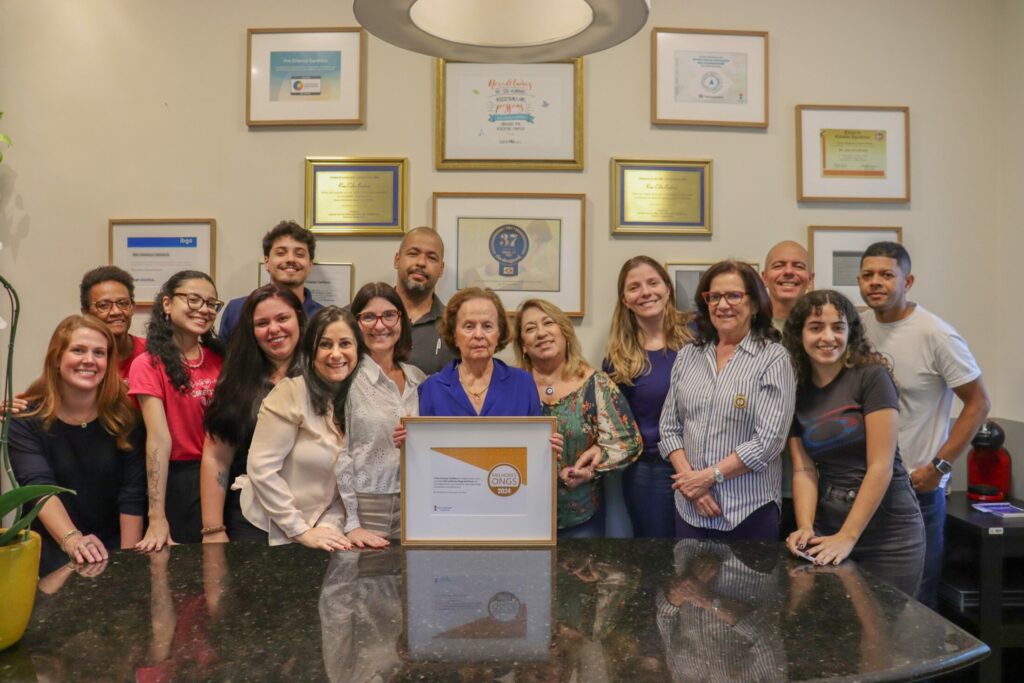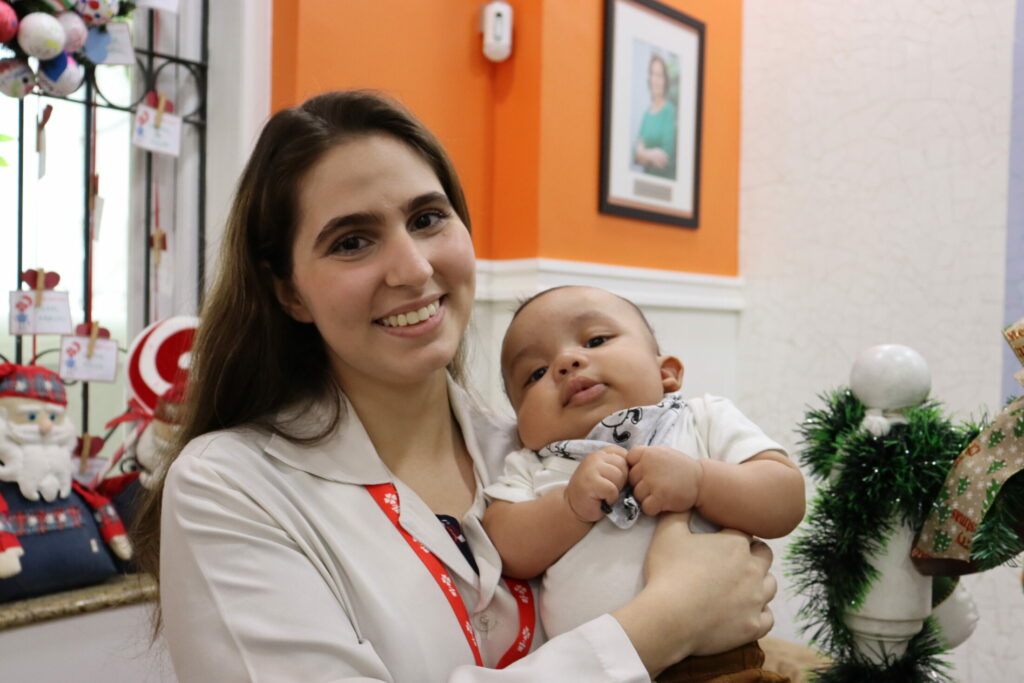The social impact of heart disease
Doctors from Pro Criança talk about “The social impact of heart disease” in a free and hybrid event
30/04/2024
DR. ROSA CELIA, DR. ISABELA RANGEL AND THE SURGEON DR. ANDREY MONTEIRO CLARIFIES PARENTS AND SOCIETY IN GENERAL ABOUT INTRACARDIAL MALFUNCTION WHICH AFFECTS MORE THAN 250,000 CHILDREN PER YEAR IN BRAZIL
More than 50% of newborns who would need surgery to correct congenital heart disease are left without care in Brazil, according to estimates from the São Paulo State Cardiology Society. In times of pandemic, this percentage of non-attendance could have reached 70%. The country currently records around 257 thousand new cases of congenital heart disease per year.
Taking advantage of the movement around Congenital Heart Disease Day (12), and with the aim of mobilizing future mothers and fathers and society as a whole, Pro Criança Cardiac promotes an enlightening conversation on the topic on June 13, Monday. fair, at 3pm, with Dr. Rosa Celia, its founder and president, Dr. Isabela Rangel, medical director of the institution, and pediatric heart surgeon Andrey Monteiro.
The event is part of the Pro Criança Humanization Cycle and the format is hybrid: in person and open to the public, in the auditorium at Rua Dona Mariana, 40, in Botafogo, and online with live broadcast on the YouTube channel.
Causes
According to the medical director of Pro Criança Cardiac, Dr. Isabela Rangel, the causes of cardiac malformations are not well defined and include several factors, such as: use of some medications or drugs, maternal diseases such as lupus and diabetes, infections such as rubella – which can interfering with the formation of the fetal heart in the first weeks of pregnancy – in addition to a history of heart disease in previous pregnancies and genetic inheritance.
Risk factors
One of the factors for the development of congenital heart disease is genetic inheritance. Mothers and fathers with this history have a greater chance of having a baby with some type of heart disease. This also happens when the couple has already had a baby with some malformation.
Genetic syndromes are another factor associated with intracardiac malformation, such as Down Syndrome, in which a percentage of patients may have an atrioventricular septal defect, among other heart diseases. Advanced maternal age is also considered a risk factor for congenital heart disease.
Is there prevention?
Dr. Isabela clarifies that there are no ways to prevent congenital heart disease, but it is important that women, before becoming pregnant, seek out an obstetrician to carry out a clinical assessment, see what their real health status is, whether they have any vitamin deficiencies and find out which medications you can or cannot use during pregnancy.
It is also important to check the vaccination schedule and whether she needs to have any vaccinations before becoming pregnant. Another important point is eating habits. “Women need to have a balanced diet and not use illicit drugs, not smoke and not drink alcohol, in order to guarantee the adequate development of the fetus”, she highlights.
Diagnosis
Early diagnosis is essential, especially in the most serious heart diseases, according to the medical director of Pro Criança. Fetal echocardiography is a method capable of identifying structural lesions before birth and, in general, should be performed between the 24th and 28th week of pregnancy.
The little heart test is a simple exam, carried out in the maternity ward on newborns and capable of early detection of hypoxemia that characterizes clinical heart diseases.
“Taking into account that one in every 100 babies born will present some type of congenital heart disease, the detection of intrauterine heart disease allows the medical team to monitor the entire development of the fetus, scheduling the birth in a health unit that has the necessary structure. for the conduct and clinical treatment of the baby, if he has a heart disease that requires more immediate intervention”.
The doctor draws attention to “one of the major obstacles that delay diagnosis”: the lack of information among families about the existence of heart disease in children. “Pediatric monitoring of babies is essential, as changes may be identified during routine consultations that suggest heart disease, and referral to a specialized center may be indicated,” she says.
Treatment
In addition to surgery, nowadays, there is the option of a less invasive procedure called therapeutic cardiac catheterization, to treat some types of heart disease.
Related articles

The 2025 World Top SGOs Are Live

Pro Criança Cardíaca has already secured its registration for the 2025 Best NGOs Award
